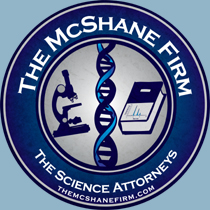The top 2 problems seen with Gas Chromatography BAC results The testing method used most frequently in blood based Blood Alcohol Content (BAC) analysis in the United States is called headspace gas chromatography (GC) with flame ionization detector, using wall coated open tubular capillary columns. The process analyzes chemicals without decomposing them. The GC […]

Ethical Competence versus Technical Competence: Why trying your best doesn’t cut it
Technical Competence versus Ethical Competence: Why trying your best doesn’t cut it Don’t simply be technically competent. Have ethical competence. This blog has featured acts of complete ethical failure in various crime laboratories. It is time that this blog also begin to feature another crucial part of the justice system: the criminal defense trial […]

Crime Laboratory Fees: A Form of Bias
New Paper Shows How Crime Laboratory Fees Are A Form of Bias In a new paper, Koppl and Sacks point to the ugly and hidden side of laboratory science that those of us that defend citizens accused of crimes know well. The money-making scheme that are court assessed criminal laboratory user fees. In that paper, […]

The Continued Need For An Independent Judiciary
The Continued Need For An Independent Judiciary Justin J. McShane, JD, F-AIC[i] and Katherine Kennedy, JD[ii] At the 2012 NCDD summer session, our great friend and liberty’s champion Gary Trichter of Texas asked a simple, but profound question: “Would they ask you to be number 57?” There were 56 delegates to the Continental […]

Stereoselectivity matters in methamphetamine: The Science of Breaking Bad cook makes both D and L forms of meth
Methamphetamine analysis comes down to the stereoselectivity capabilities in the crime laboratory. Stereoselectivity is crucial in a crime laboratory. The ability of an analytical chemistry device to be specific to a type of a form of drug is key. Stereoselectivity is one of those key functions. Even the venerable workhorse of analytical chemistry in a crime […]

The ACS Hands-on Forensic Chromatography Class
The ACS Hands-on Forensic Chromatography Class There was a dream and the dream could best be stated thusly: Develop an expertise in that which interests you. learn, lean, learn, then do something totally counter-intuitive…. give away your knowledge for free to everyone and anyone who will listen. Become the proverbial Johnny Appleseed. People will love […]

Training in Forensic Science: The Colorado Department of Public Health and Environment
If you have ever seen me lecture before, you know that one of my themes is the need fro greater education and training in the laboratory for analysts. For years, I have been talking about the “oral tradition” method of training that goes on at forensic laboratories wherein the last person to push the button […]

A “Redo” Book! Are you serious?!?!?! More on the Colorado Department of Public Health and Environment Laboratory
Forensic scientists make mistakes. At the end of the day, they are human. But in criminal law and forensic science or just plain old science in general, you have to report out and document your errors. Apparently, this major legal lesson and scientific precept was lost on the Colorado Department of Public Health and Environment […]

Chemical Measurement Process and The Calibration Function: How to best calibrate an instrument used in forensic science
The technical goal of any calibration related effort is t0 achieve a meaningful and valid CMP. According to The International Union of Pure and Applied Chemistry (IUPAC): Chemical Measurement Process (CMP): An analytical method of defined structure that has been brought into a state of statistical control, such that its imprecision and bias are fixed, […]

Chain of Custody of Biological Evidence: Garbage In = Garbage Out
Humpty Dumpty sat on a wall, Humpty Dumpty had a great fall. All the king’s horses and all the king’s men Couldn’t put Humpty together again In essence, this is the view held by The Technical Working Group on Biological Evidence Preservation in its publication entitled “The Biological Evidence Preservation Handbook: Best Practices for Evidence […]

Improper calibration in true scientific endeavors versus forensic science in the courtroom
In the broader world of science, it is well recognized that parts of the measurement system need to be demonstrated to be in control and properly calibrated as well as properly used by a trained and knowledgable operator. It is through these basic fundamentals that we can infer with sufficient confidence that our testing is […]


